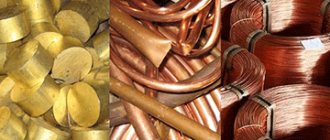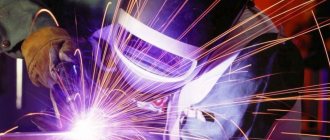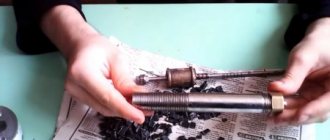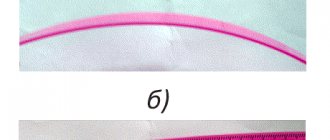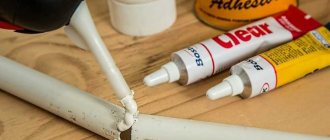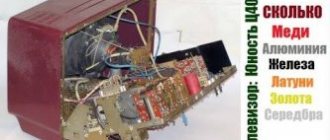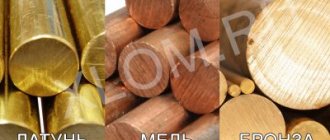scrap is readily accepted by many processing companies, because it is a valuable source of secondary raw materials .
After processing, it is used to produce various products that can be used in many areas of the economy.
For the population, scrap metal is a way to earn extra money.
Many bring old batteries, pipes and other metal that previously served in everyday life to ferrous metal collection points, and some are professionally engaged in searching and digging for ferrous metal.
Be that as it may, recycling ferrous metal is an important aspect in preserving the environment and conserving natural resources .
In this article we will step by step consider the process of ferrous metal processing: from sorting to production of finished products.
Sorting
Ferrous metals include:
- steel,
- cast iron,
- iron.
Scrap at enterprises is sorted according to the following criteria :
- dimensions;
- separation by chemical composition.
Large organizations for recycling metal recyclables automate the sorting process, significantly speeding it up.
First from scrap metal:
- remove impurities ,
- remove garbage .
If work is carried out with large metal structures, then loading equipment is used for sorting.
Sorting by chemical composition is carried out taking into account the quality indicator of the metal, as well as its type. In addition, during sorting, separation can take place based on the content of alloying and carbon components .
In small enterprises, sorting is often done manually , immediately at the acceptance stage. Scrap is divided into:
- heavy;
- easy;
- moderate severity.
Also shared
- large-sized elements,
- small-sized.
Sorting is necessary to prepare scrap for melting .
For correct processing, the metal is cut into fragments before melting.
Scrap metal collection points
Scrap metal collection points are usually located on city outskirts. Large areas are required to collect, store, and move piles of steel waste. The specific nature of enterprises is such that a lot of noise is produced when processing scrap metal. In order not to create conditions that interfere with the work and leisure of citizens, reception points are not allowed in the city center.
Acceptance of scrap metal is carried out in three stages:
- The receiver evaluates the quality of the waste;
- The scrap is weighed;
- Payment is made to the supplier.
Cutting and cutting
When large-sized scrap ferrous metals are brought to the enterprise, its processing begins immediately after acceptance. Employees of the collection point cut large pieces with special cutting tools, giving the scrap metal the required size.
If the pieces of metal are small in size and weight, then they are pressed into briquettes using presses (their design is the same as presses for waste paper, only they have greater pressure). Metal sheets are also subjected to shredding - crushing in shredders. The essence of the process is the same as when recycling documents - cutting sheets into fragments.
In order to give the pieces a marketable shape, enterprise workers use shear presses for cutting. In this case, the scrap is cut into pieces, immediately after which pressing and shipping are carried out.
Disposal
Scrap recycling is beneficial for everyone. Companies receive recycled materials from which useful products can be made - cheap and practical. For the population, this is an additional source of income, because a great deal of such waste accumulates, especially among those people who live in the private sector in their own homes.
The accumulation of metal waste in landfills is harmful to the environment. The metal corrodes and gradually decomposes. Harmful substances enter the soil and groundwater. That is why it is necessary to try not just to throw away scrap, but to hand it over to special collection points.
Recycling scrap metal is practical and beneficial in all respects for preserving the environment and saving natural resources. Some are even professionally engaged in ferrous metal mining - searching and digging. With the right approach and diligence, you can make good money from this. The cost of ferrous metal will depend on its condition. Scrap with corrosion is cheaper, this is undeniable. Metal in good condition will be more expensive.
Cleaning
cleaned before being sent for remelting . The technology depends on what characteristics the scrap has. Crushing is widely used . It is carried out in a special chamber into which large elements are placed.
To remove from the surface
- dirt,
- non-metallic impurities,
- dust particles,
separation technology is used . Its essence lies in exposing the object to a powerful air flow, due to which all foreign elements are blown away from the surface and removed from the crushing chamber.
There is another technology that is widely used in processing plants.
We are talking about the use of a magnetic separator ; it can be used as part of a conveyor.
The crushed metal is attracted by a powerful magnet, thus sifting out non-metallic impurities .
drum-type magnetic separator is shown in the picture. There are also flat magnetic separators that can also be used in this industry. Magnet power may vary.
Of course, such technologies are the prerogative of large enterprises that can afford to invest in the purchase of new processing lines. Small collection points carry out sorting and cleaning using manual labor .
How to donate scrap metal?
If you want to help the environment and earn a little money, do not throw away scrap metal, take it to special collection points. There are such points even in small towns, so this should not be a problem. At such points, non-ferrous metal is also accepted, which costs significantly more than ferrous metal.
The price of metal depends on the dimensions and weight, external condition, and the presence or absence of impurities. In any case, selling scrap metal can be turned into a profitable business. Be that as it may, scrap metal can be a source of good income - both primary and additional, think about it!
Metal recycling (2 videos)
Preparing for melting
After cleaning of the scrap is completed, it is sent for smelting . Before this, pieces of the desired shape are pre-formed from the metal. For this purpose the following are widely used :
- plasma cutters;
- shredders;
- mechanical cutters.
The finished product is strips of metal , which are packaged or made into briquettes. If after crushing the scrap was cleaned, then cutting is excluded from the cycle.
Many enterprises include a stage in the process
- briquetting,
- metal packaging.
To form packaged briquettes, the workshop is equipped with pressing equipment (usually hydraulic or mechanical installations) with a baling function (baling presses).
Pressed metal in briquettes is convenient to store and transport , it is easy to load and takes up little space in the warehouse and in freight transport.
Remelting in smelters
Smelting plants are specialized enterprises whose workshops are equipped with melting units . They can be electric or plasma:
- Electric ones have higher efficiency, are more productive and are safe to use.
- Plasma ones have a more affordable price, but their efficiency is lower.
Ferrous metals from the melt are sent to manufacturing plants where the metal is reused.
Modern remelting technology consists of several stages.
scrap metal is poured
into a steel bucket, on the surface of which a special coating has been applied .
Then molten cast iron is poured purged with oxygen .
The quality of steel is deteriorated by its constituents:
- sulfur;
- silicon;
- phosphorus.
It is sulfur and phosphorus that cause steel to break at low and high temperatures. For this reason, it is important to get rid of unnecessary impurities at the scrap melting stage. To burn them out, special additives are used.
The fewer foreign components the steel contains, the better its quality. You can give it special properties by including
- vanadium,
- chromium,
- cobalt,
- nickel
Melting furnaces have different capacities. Modern installations are fully automated , this makes it possible to control the technological process at all its stages.
At large enterprises, scrap metal is not only melted down, but also rolled into ingots . From an economic point of view, this is more profitable than simple recycling. Such products can be sold on the market in a short time, so large enterprises have high profitability.
If you follow the production technology, then the steel produced at smelting plants will be no worse than the products that were obtained from ore .
Equipment used
scrap processing equipment is used namely:
- scrap scissors;
- baling and briquetting presses;
- portable hydraulic shears;
- plasma cutting units;
- sorting and grinding equipment;
- dispensers;
- reloaders;
- shredders;
- magnetic separators.
Don’t forget about cranes or lifting magnets - they are used to deliver material.
Baling presses are necessary for the preparation of waste, for example:
- wires,
- sheet scraps.
The press consists of a chamber with plungers; the installation is equipped with hydraulic equipment and a mechanism for loading scrap into the chamber. During the packaging process, waste is compressed in three planes, thus forming compact bags.
The recycling process consists of loading metal waste into a chamber for subsequent pressing; the processing is completed by storing the bags . To service the installation, mechanized equipment is used, for example:
- lifting magnets,
- taps.
A shear press is an installation in which the transverse wall of the chamber acts as a knife beam. Metal waste is moved under the knives using a feed mechanism, then the scrap is fixed with a stamp.
Alligator scissors are a lever device that can be used to cut:
- pipes,
- armored cable,
- rolled steel.
A clamping device is used to fix the scrap, and a roller is installed to direct the metal under the knife.
Hydraulic shears - consist of:
- beds,
- feeder,
- clamping and cutting mechanism.
The installation is equipped with an electric drive and a hydraulic drive. Hydraulic shears can effectively cut scrap into pieces.
The processing process consists of preparing the pieces and loading them into scissors. Next, the cutting process itself is carried out, then the resulting pieces are sorted by size. You can see hydraulic shears in the photo:
Mini-plants for processing scrap - with their help, you can process ferrous scrap, and then immediately produce many types of finished products , for example:
- construction fittings,
- wire rod.
In addition, you can set up the release:
- corner;
- I-beam;
- channel;
- grinding balls.
Remelting of waste occurs in electric arc furnaces and induction-type .
By installing such a mini plant, you can produce from 60 thousand to 1 million tons of products every year.
The steelmaking plant is designed to produce tool and low-alloy steel. Production of structural steel is also possible.
Information with current prices , as well as links to the seller’s websites, is presented in the table:
Equipment used for melting ferrous scrap
| Name | Model | Price | Website |
| baling presses | Rico S-12, Rico S-26, Rico S-40 | from 500 thousand - 2.4 million rubles | press-rico.rf |
| BV1330, B1334, BG1334, B132, B122 | 700 thousand - 2.5 million rubles | impexpress.ru | |
| briquetting presses | AYMAS VR-80 | 63 thousand rubles | equipnet.ru |
| alligator scissors | AYMAS HM52, Н2732, Н313, Н315, RIKO A-500E, RIKO A-600 | from 220 thousand rubles | vlos.name |
| electromagnets | EMG078, EMG230 | from 450 thousand rubles | bars-service.ru |
| magnetic separators | MCP - 1, MCP - 2 | negotiable | magnity-magsy.ru |
Applications of recycled ferrous metal
Scrap metal after melting acquires the properties inherent in primary raw materials. It produces high-quality rolled metal that can be used everywhere .
Mining metal ores is a complex business, so scrap recycling is much more profitable for the industry.
It allows you to achieve:
- Saving energy resources.
- Reducing negative impact on the environment. Mining raw materials from ore causes 10 times more harm .
- Preservation of natural reserves (iron ore).
- Accelerating the extraction of raw materials. Scrap recycling is a faster process than mining and using iron ore.
After recycling metal waste, ferrous metals can be used to create any products needed by humans.
This video shows the operation of a ferrous metal processing line:
Calculation
At the last stage, the accountant displays the cost of the delivered scrap in order to make a settlement with the seller. The amount consists of three indicators - the weight of the cargo, established in the price point per kilogram of metal and the commission for foreign inclusions. Payment is made in cash or by transfer to an account. This completes the work with the supplier.
Further steps are related to the processing of scrap metal - cutting, pressing, storage and sale to metal processing enterprises.

